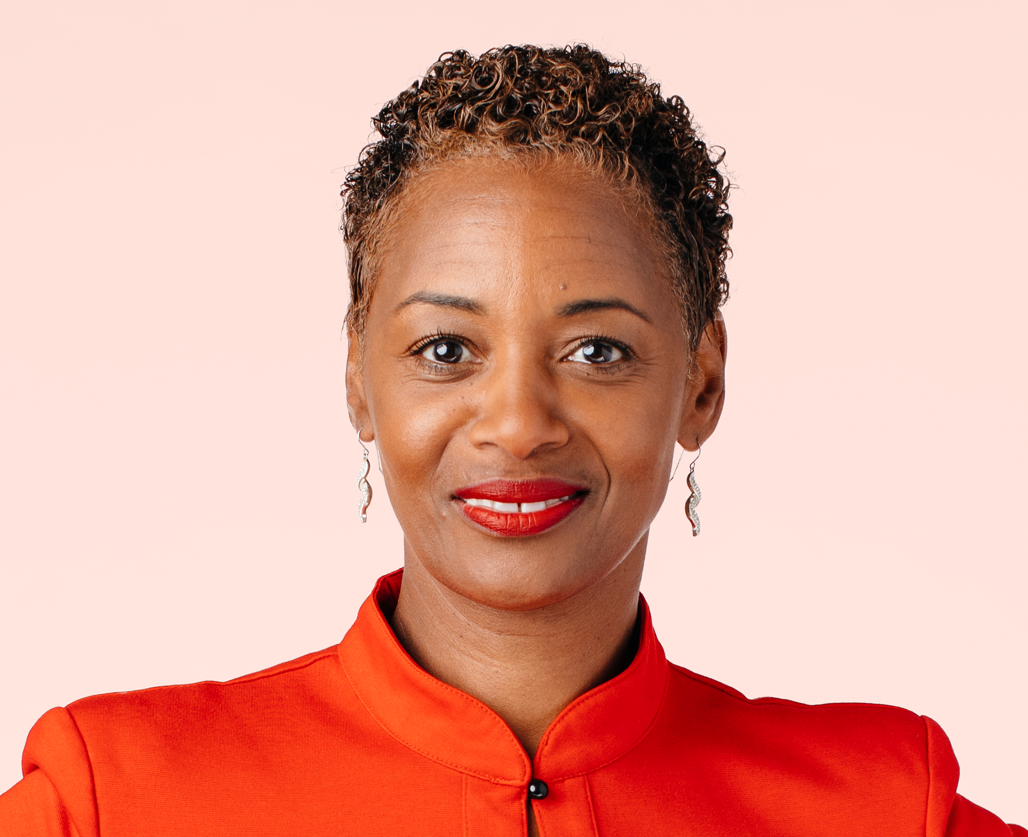
Progressing towards a brighter future for women
As we celebrated Women’s Equality Day, it’s important to remember the ways we can enable fair and equal accessibility in the workplace.
The job market should be a space that recognises the merit of people’s achievements, offering opportunities according to their skill sets – not their race or gender. Tackling historic gender divides at top level can help remove barriers to roles and responsibilities – particularly in the technology sector – and ensure we’re building a better environment for future generations to come.
With this in mind, a range of industry thought leaders and subject matter experts have commented on the importance of promoting diversity, equality and inclusion in the world of work – as well as the paths that can be taken to achieve this – from ways to combat underrepresentation in the industry, to creating a more open, transparent and resilient relationship between employees and employers.
Clare Hickie, Chief Technology Officer at Workday

“To make STEM careers more appealing and accessible to women, fostering a culture of genuine inclusion is crucial. Leadership must be transparent, open, and committed to innovation, setting an example that values diverse perspectives. We must remember that inclusion requires concrete actions, not just good intentions.
“At Workday, for instance, we aim to help young women looking to build technology careers by supporting industry-wide networks like Connecting Women in Technology. Within our own business, our employee belonging council, Women @ Workday, facilitates impactful programmes and mentoring circles that provide an environment for shared learning – offering valuable support and opening up new opportunities for our team to develop.
“Alongside the empathetic human touch, technology, such as AI and data analytics can also help support inclusion efforts by measuring trends, identifying skill gaps, and enhancing employee development. By prioritising an inclusive culture and leveraging technology effectively, STEM can become more welcoming to women, leading to meaningful change across the industry.”
Dr Andrea Johnson, CIO at Pipedrive

“Promoting gender parity in STEM is crucial, as technology plays a central role in today’s world, yet women are still underrepresented in the industry. Providing support from the beginning ensures that women feel valued and included in these fields, which leads to the development of stronger, more inclusive products.
“Creating an environment where colleagues can bring their best selves – leveraging their diverse backgrounds and unique experiences – leads to higher performance. Beyond being the right and legally required approach, promoting equality is simply good business practice.
“Research indicates that companies with gender balance outperform their competitors by nearly a third. An increasing body of evidence supports the idea that businesses and people managers can enhance their organisational structure, team management, and employee benefits to drive success. This approach boosts productivity, ensures a strong talent pipeline, and maximises every opportunity to build resilient and profitable business operations.”
Marni Baker Stein, Chief Content Officer, Coursera

“Women’s Equality Day 2024 offers us a reminder of the importance of fostering equitable access to educational opportunity, especially for emerging technologies. Demand for AI skills continues to rise, with 71% of executives expressing a preference for candidates with AI skills over those without, even if the latter are more experienced. If we are to continue to nurture workplace and labour market equity, ensuring that women are empowered to attain these skills is imperative.
“Women still face barriers when seeking to access technology-related learning. Unfortunately, these have been the historic hallmark of the tech sector, and we’re now seeing emerging discrepancies across genders for AI skilling. Coursera’s learning data and current enrolment trends indicate that GenAI upskilling is predominantly led by millennial males, accounting for 72% of participants both globally and in the UK, with 56% globally and 63% in the UK falling into the 28-43 age range.
“If this skills imbalance continues, there is a significant risk that women will be left behind as AI becomes more central to job opportunities. This is why targeted interventions are key, such as mentorship programmes, gender-inclusive curricula and flexible learning pathways that help women juggle learning with their personal and professional obligations. These tools, which foster accessibility, can help narrow some of those historic gender divides, creating more inclusive opportunities and ensuring that women are equally represented in AI and other critical STEM fields - and are ready to capitalise on new economic opportunities.”
Jessie Scheepers, Belonging and Impact Lead at Pleo

“Women’s Equality Day gives us a chance to reflect on the progress made to ensure women are valued, feel safe and have equal opportunity. At the same time, it must be a time of reflection and a commitment to work on removing barriers that are still in place. True gender equality is when all people have equal opportunity and can thrive.
“We will only have gender equality when all women are equal – this includes our trans sisters, women of colour, disabled women, as well as women part of other underrepresented groups. When we look at who enters the fintech space – we still lack this diversity. This is still an industry dominated by men, and when we look at the races and ethnicities of the women we do have – we see majority white women (myself included). This is an important point, as we’ve all seen the research by now that diverse teams financially outperform non-diverse teams.
“For fintechs who want to succeed, it’s business-critical to build diverse teams - and encourage women from all backgrounds to enter fintech. By having a focus on building and setting a diverse workforce up for success, People & Talent teams play a very real role in ensuring their company is successful. On days like today, ask the women around you: how does your business set all women up for success? What is getting in their way?”
Samantha Wessels, President of EMEA at Box

“Women's Equality Day is a powerful reminder of how far we've come – and how far we still have to go – to achieve true gender equality in the UK's tech and business sectors. Despite progress, women still only hold around 28% of tech roles and face barriers to leadership, with less than a quarter of senior roles held by women.
“To achieve real equality, we need to move beyond awareness to action. This means supporting all underrepresented communities at every stage of their careers by providing development, mentorship and upskilling opportunities. This is especially true as we focus on enabling employees to succeed in the era of AI. We also need to advocate for fair workplace policies, and leadership teams must remain committed to fostering inclusive working cultures where diverse voices can thrive.
“In the UK, where technological innovation is driving the economy, it's vital that we harness the full potential of our workforce. Diverse teams not only promote better decision-making, but also drive creativity and innovation. The future of technology and business depends on our ability to tap into the full range of talent and perspectives.
“I’m proud to work for a company that takes actions to create an inclusive environment where employees feel they are fairly treated regardless of their background or identity. As Box scales across Europe, we continue to focus on belonging and building communities that thrive. This includes initiatives like courses on how to counteract unconscious bias to employee-led affinity groups that elevate the needs and experiences of underrepresented groups.”
Roshan Kindred, Chief Diversity Officer, PagerDuty

“This Women’s Equality Day it’s important for businesses, particularly in the field of technology and development, to look inward and address systemic challenges around fairness and accessibility to career opportunities.
“Leaders play a vital role in fostering gender equality, and this begins with setting a positive example through shared actions and collective commitment. Together, we can start by conducting a comprehensive audit of our staff, considering gender, race, authority, and salary, to identify areas where we can improve representation to produce better business outcomes. By working closely with teams, we can ensure that everyone has access to opportunities for growth, such as skilling programs for women in coding and development. It’s also important that we collectively advocate for change at all levels, including the C-suite, where leadership can be pivotal in driving these efforts. Through collaboration and shared responsibility, we can build a stronger, more inclusive community that can support the diverse needs of our customers and stakeholders alike.
“An engaged and productive workforce drives increased innovation and leads to better business outcomes. However, when individuals perceive that they are treated unfairly, engagement declines, which can hinder innovation and negatively impact overall business performance. McKinsey found that for every 100 men promoted from entry level to manager, 87 women were promoted. While skill and experience varies, we must ensure that bias or barriers are addressed. There needs to be a level playing field across gender, to ensure teams operate in an open culture. At PagerDuty, we strive to live by our inclusive values, creating a space where employees feel welcome, safe and heard. We use data-informed decision making to develop and sustain ID&E programs that drive employee engagement, belonging and ensure that our teams are motivated to solve complex problems for big customers.”
Gali Arnon, Chief Business Officer, Fiverr

“As we mark Women’s Equality Day, it's crucial to recognise the ongoing transformation in our workforce and the steps needed to ensure women are at the forefront of these changes.
“This year’s emphasis on making STEM careers more accessible to women is especially important with the demand for tech skills, particularly in AI, rapidly increasing. It's more important than ever to break down the barriers that prevent women from entering and leading in these fields. For this to happen, commitments need to extend beyond the workforce. Through Fiverr’s partnership with Virgin StartUp for the Female Founders Competition, we’re actively working to empower female entrepreneurs. By providing mentorship and resources, we can equip women with the tools they need to grow their businesses and excel in traditionally male-dominated industries.
“The path forward is clear: to advance gender equality, we must continue to provide women with the skills, opportunities, and support necessary to thrive. As the workforce evolves, the future of our economy and society depends on leveraging the full potential of all talent, ensuring that women not only participate but lead in shaping that future.”

